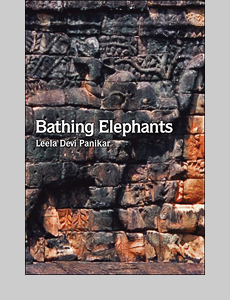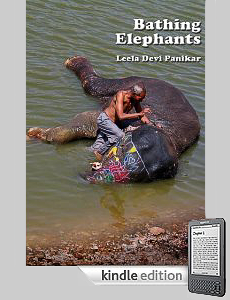June 4th. What I remember
My memory of June 4th 1989
Fax Machine, Red Convertible, Candlelight Vigils.
Important dates in one’s lifetime remain memorable. In Hong Kong most adults over certain age will not forget 1997, our handover date, we were handed over to China by the British.
And most of us in Hong Kong will not forget the spring of 1989 – the year of student demonstrations in Beijing. Students came to mourn the death of Hu Yaobang, a liberal who stood up for political and economic reform, but soon began a protest. The news of protesters that came out was sketchy and smuggled. Newsreel pictures we watched on TV were mostly reconstructed video frames.
At the time I was running my business ‘The Prince of Wales Pub’ at Sun Hung Kai Centre in Wanchai. Long working hours of arriving early and leaving late left me little time for world affairs, television or radio. I kept up with the news with quick readings of the South China Morning Post during breakfast and lunch breaks. And it was on such an ‘innocent’ morning that Wolfgang, who had his business headquarters in China Resources Centre next door, breezed in saying, ‘Did you hear the latest?
It was June 1st, and no, I had not.
‘Changan Avenue is totally blocked, the crowds are getting heavier.’
Tienanmen Square protests, which were into their seventh week, had taken a turn for the worse.
‘How do you know?’ I asked.
‘The fax machine,’ he said. ‘My office in Beijing is in Changan Avenue.’
His staff was sending him first-hand news. I had not yet installed a fax machine in my office and did not realize how instantly the messages came through. There was the machine working overtime, pouring out news, ream after ream.
Staff in his Beijing office took turns to visit the square and send him news. The next day, my friend sent his office boy over with rolls of faxed news of Tienanmen happenings, and when the faxes stopped he sent me handwritten bits of information. I became totally immersed in the happenings. At times, on reading some of the fearsome details of the protest I felt as if my heart would stop. In spite of all, I was not prepared for the subsequent massacre.
The protest snowballed in numbers and discontent, and lasted seven weeks. The city of Beijing had seen student protests before but never one on such a large scale. The students, in the end close to a million, began voicing other grievances against the party elite, corruption, and inflation, and they demanded freedom of speech and freedom of the press. They sought workers’ rights. In short, democracy is what they asked for. Protests started up in other cities too, but not on such a large scale as in the square. As time passed, tents were put up, a plastic Goddess of Freedom installed, and the number of loudspeakers began to grow.
The square, the biggest in the world (about 90 football fields) and in the centre of Beijing, had filled with protesters – close to a million. The government, at a loss as to how to suppress something this large, saw only one solution – quell it with fire-power.
By June 2nd the roads were closed to traffic as more and more protesters, at first sympathetic and focused and later confused, poured in. And on the night of June 3rd, 250,000 troops were ready to come in from all sides, including from the Forbidden City. The protesters refused to leave and they were also trapped. Students tried surrounding bus-loads of officers who had come in. Soldiers using batons and tear gas rescued these military personnel. Things got pretty nasty. More and more protesters kept arriving on foot and by bicycle. The number of supporters and onlookers was largest by night, and growing.
On the night of June 3rd, one of Wolfgang’s staff slept in the office for fear of stepping out. Before he went to sleep, he heard much cheering and shouting and sound of shooting. By about 4am, he was awakened by a commotion outside the office. He could not see much out of the window, though he had a good view. The streetlights now dimmed by smoke. He could only see rows and rows of military vehicles and tanks. He stepped out of the room and was told to keep away from the windows and not go out onto any balconies. The noise of artillery and strong smell of cordite filled the corridors.
June 4th Massacre. Martial law and a bloody day.
Unarmed civilians trying to block the troops’ advance and others had been mowed down. The troubled morning was filled with the sirens of ambulances, the sound of gunfire, and low-flying helicopters.
Shockwaves moved across the world. In many countries it triggered sympathy protests denouncing the Chinese Government.
We in Hong Kong reeled in shock as news, wave after wave, of the horrific incidents reached us. The reports spread wildly and we were stunned and seized with panic. We could talk of nothing but the massacre of the students and the arrests of thousands. What was to happen to us after 1997? In eight years’ time we were to be ‘returned’ to China.
Hong Kong mourned openly and showed its support for the students. People wore black armbands. Taxi drivers had black pennants flying from their taxis. I drove around in my red convertible with a black flag streaming from my radio antenna. I ignored warnings from friends it was dangerous to do so, to so expose myself and my feelings.
That was 24 years ago. Doom and gloom has not been inflicted on us. We are still free to think and protest.
Hong Kong still commemorates the day, June 4th. We pay our respects to those who died that day and to those who were tortured and later died in prisons. We sympathize with those who are still in prison. We ask for families under house arrest to be released. We ask the Chinese Government not to delete history and pretend nothing happened.
On the 4th of June every year, close to 200,000 Hong Kongers, many of them born after 1989, turn up in Victoria Park for candle vigils. Protesters and students take part in sit-ins or go on hunger strikes to show their concern.
We want to know why China does not apologize to the participants and their families for the atrocities carried out, why those who sought democracy are still in prison or under house arrest.
China demands apology from Japanese for WWII war atrocities, but overlooks what it has done to its own people and what it is still doing in Tibet, Mongolia, and Xinjiang.






Thanks Leela. used to the disasters in India the June 4 Massacre was another event. No I think differently
Yes, I am sure. So many things happening around the world are news and when it happens at home or close to home or in a place we know it affects us a lot more. You have travelled around the world, and especially much in China and these are you are close to your heart.
Leela
This is a profound and absolutely moving read. For those of us who were strangers to SE Asia, specifically China and Hong Kong, during the Tienanmen Square Massacre, here’s a version of the days leading up to and including this awful tragedy. Beautifully written, most evocative and most, most thought provoking…..Thank you, Leela Devi Panikar
Betty, thank you. Your comments are thought provoking too,they let me see another side of things.